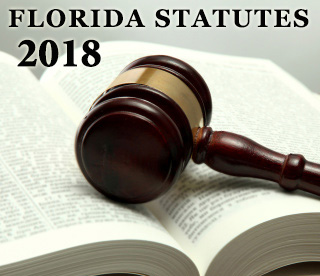
The past two years have seen significant political upheaval across the country and the proliferation of below-the-belt political campaigning. As a direct result, this month saw the removal of Palm Beach Judge Dana Marie Santino. What was interesting about that case was the division of the final decision, with Florida’s Supreme Court judges divided over the outcome. Some found it too punitive, while others think punishment could have gone further.

This raises the question as to whether the judicial body of Florida is making moves to a more progressive way of working and that laws are influenced as a result. The state has always had a vibrant contrast between left and right interests leading to open political discourse. As legal proceedings continue to move forwards in the state, taking a look at key areas of modern day politics sheds a little light on what direction the state is moving.
The state of civil rights
Florida and its legal arena have a long and proud history when it comes to civil rights. The state hosted the first black judge, Edward Rodgers, who died this week aged 91. Through his work, areas of Florida – most notably Palm Beach – loosened up civil rights laws considerably making the peninsula the multicultural area it is today. Today, this record in support of civil rights continues; October saw the conviction of former policeman for violations, according to the Department of Justice.

The legalization of marijuana
Marijuana continues to receive softened stances around the country, but largely in states associated with left-wing politics – the west coast and further reaches of New England – and abroad, in the likes of Canada and the Netherlands. Florida implemented a medicinal use bill in July 2017, but the bill has been poorly implemented, according to the Miami Herald.
What’s the future?
New developments suggest that it could be full legalization. Lawmakers have suggested that the legalization debate is worth having, according to a report by NBC, and has garnered the support of bipartisan lawmakers and law enforcement. Whether it will become reality is another matter, but marijuana legalization has continued apace since 2016’s first measures.
Looking to Amendment 9

Between these pieces of legislation and the attitude of the court, it certainly seems like Florida is moving towards more nominally progressive positions. The conservative aspect of the state will always be recognized, and rightly – a whole sect of voters should not be disenfranchised. However, it will be interesting to watch in the coming months and through the votes as to how the legal landscape of the state will evolve.












